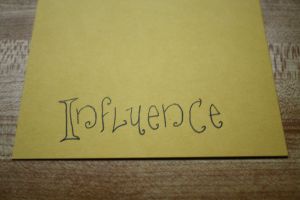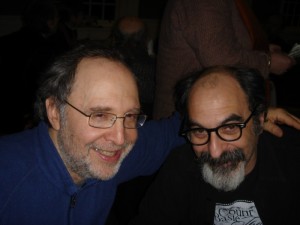If you write poetry, perhaps you’ve had an experience of reading a poem that makes you sigh and utter the words “if only I had thought of that first”. What about consciously working a phrase or line of someone else’s into your own poem? Perhaps you’ve never done that, and yet found unconsciously a line or phrase of another poem breathing itself into yours?
I’d like to consider the idea of influence.
Nathan has an incredible ear for music. Sometimes we’re listening to the radio and with nonchalance he will call out musical influences of the song on the airwaves. It’s almost like a game we have in our house. Katy’s ear hears the minutiae but instead of picking out influence, she mimics the sounds and can usually accurately guess what’s coming next melody– wise. Hers is a photographic mind of music and the play list extensive. I teasingly call her “the human jukebox.”
When it comes to recipes, this idea of influence is a bit of the wild west. What would the ratio of original recipes be that have not been riffs of another person’s? I actually think it’s one of the things about recipes I like best- inspiration from the original and then the personalizing and tweaking that ensues. There is ongoing discussion about the right way to attribute recipe source.
In poetry, there is a way to call out and pay tribute or homage to the source of one’s influence. This can be done through borrowing the title of a poem that has influenced you as is or tweaking it to your place, time or particular transition from the original source. Then there are also the poems that borrow a line or phrase from another person’s poem and there are ways to cite source or not. You can also indicate that you are mimicking a poem by titling it “after (insert poet’s name).”
During my MFA program, Jeff Friedman was hands-down my favorite person to lead us in workshops. At the beginning of our workshop time together, he would provide a single or series of writing prompts to get the juices flowing before we discussed each other’s poems prepared ahead of time. I embraced the prompts. Our small group of four or five would jot out all the tendrils of ideas for 20 minutes and then share the very raw writing that resulted. He later became one of my mentors as I appreciated his deeply narrative style and the compassion lent to his characters, whether his uncle with a glass of scotch in hand or recounting memory through poetry. He didn’t let the “actual” story get in the way of the “story.”
In one of these workshops with Jeff, he gave us a writing prompt to create a poem “after” a poet. This exercise led us to consider how we might fashion a response to a poem by Cesar Vallejo about how he envisioned dying and what he might be doing. Our responses veered off from this central idea, tone and style of his voice. From it emerged a poem that I still feel proud of these many years past, set in the sticky heat of a Moroccan villa. I’m 100% romantic in my sensibilities.
There is something to be said with borrowing phrases, attributing along the way and infusing your own voice into something that is other. It is a way of grappling with the world around you – with the void and the fill, where the world is actually richer for all of the references and influence that worm their way into your work. If you find yourself influenced and appropriately enamored with a song or poem, why not try your hand at making it your own and giving it the refinements that might spark something new from the created?
It is after all, raison d’etre – this gift and need to create and re-create, n’est ce pas? How have you borrowed from or been influenced in your personal work- poetry, recipes, fiction or art?


Great post, Annelies! Here’s a link to a poem I wrote by taking the first line from a Gerald Stern poem (“Winter Thirst”) that begins “I grew up with bituminous in my mouth” and substituting “diesel” for “bituminous.” The poem took off in its own direction and the result can be read here:
http://www.primenumbermagazine.com/Issue3_PrimeDecimals3.html#anchor_214
Terry Lucas
Yes! This is exactly what I’m talking about and a fantastic example of starting with the original and then taking it in a different direction. Thanks for sharing your poem Terry.